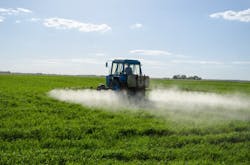Bluewater Founder Comments on Germany's Nitrate Pollution
The European Commission is taking Germany to the Court of Justice of the EU for failing to take stronger measures to combat water pollution caused by nitrates. Nitrates are essential for plants to grow and they are widely used as fertilizers.
“The big problem for the environment, farm animals, fish and humans is that excess levels of nitrate can cause severe water pollution, with consequences for people's health, the economy and the environment,” said Bengt Rittri, founder of Bluewater, which offers solutions to tackle tap water contamination.
Rittri added that the European Commission in making its decision notes that the latest figures submitted by Germany in 2012 and several recent reports from the German authorities show worsening nitrate pollution in groundwater and surface waters, including the Baltic Sea.
According to a press release issued by the Commission, Germany has not taken sufficient additional measures to effectively address nitrates pollution and revise its relevant legislation to comply with the EU rules on nitrates (Council Directive 91/676/EEC). Since the Commission considers that the water pollution by nitrates is also not sufficiently addressed in the framework of the ongoing revision of the national action program, it has decided to refer Germany to the Court of Justice of the EU.
Background
The Nitrates Directive (Council Directive 91/676/EEC of Dec. 12, 1991) aims to protect water quality across Europe by preventing nitrates from agricultural sources, polluting ground and surface waters and by promoting the use of good farming practices. It requires member states to monitor their waters and identify those affected by pollution as well as establish appropriate action programs to prevent and reduce such pollution.
Excess levels of nitrates can damage freshwater environments and the marine environment by promoting the growth of algae, which chokes other life. This process, known as eutrophication, entails a serious deterioration of water quality and loss of biodiversity. The presence of nitrates in drinking waters above 50 mg/l can have considerable health impacts on populations, especially on pregnant women and babies.
Source: Bluewater
